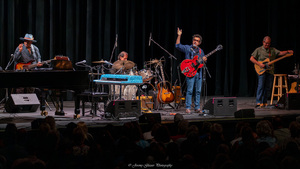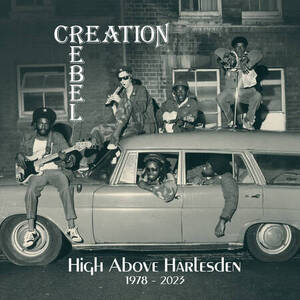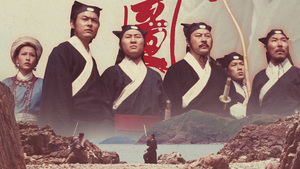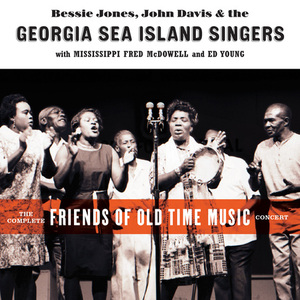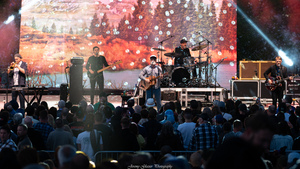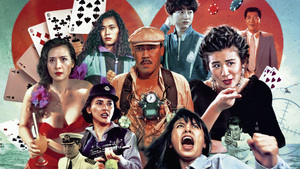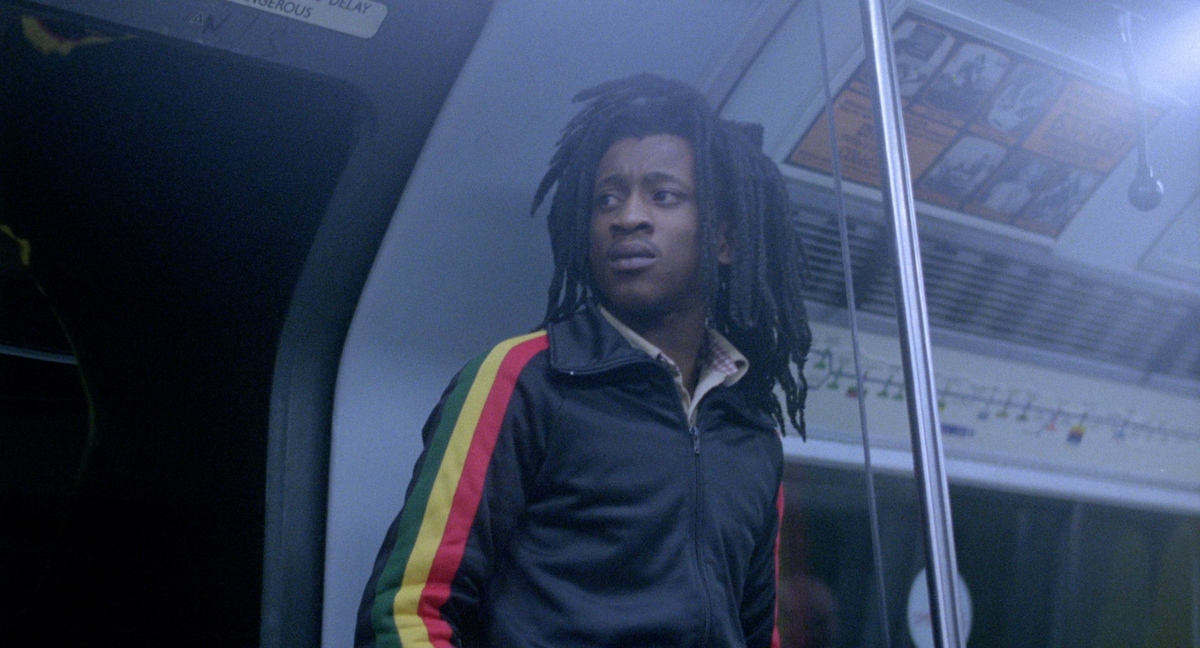
Babylon
directed by Franco Rosso
starring Brinsley Forde
Kino Lorber Repertory and Seventy-Seven
There is a single, glaring line from the obituary for director Franco Rosso that was written in The Guardian by Quadrophenia and Babylon screenwriter, Martin Stellman, that I am compelled to begin this review of Babylon with, solely for the reason that I feel that this film in particular and Rosso’s life are forever intertwined:
“Babylon marked him [Rosso] out as a fearless chronicler of the dispossessed.”
I don’t usually isolate quotes, but I have always felt a deep kinship with director Franco Rosso, as we were both children of Italian immigrants who had left the homeland shortly after World War II to the countries that had defeated Italy: Rosso’s parents emigrated to England, specifically to Streatham, south-west London, and my parents to the United States, to a working-poor section of South Philadelphia. We both grew up in areas where Italians were few, and we were both inexplicably drawn to Jamaican music, as that music, like it has been for so many who have felt isolated, became an anthem for our feelings of alienation. In my mid-20s, I took my lifelong love of ska and reggae and became a DJ at WMBR, an FM station in Cambridge, Massachusetts, and thankfully in his mid-20s, Franco Rosso, who had worked as an assistant on Ken Loach’s classic British film, Kes, and as an editor on John and Yoko’s documentary, Bed Peace, became a cutter on what many consider the first documentary on reggae music in England, director Horace Ové’s chronicling of the 1970 Wembley concert that featured Desmond Dekker, The Pioneers, and the Maytals: Reggae.
In 1973, Horace Ové co-produced one of Rosso’s earliest directorial efforts, a short documentary entitled Mangrove Nine, which was a critical view of the arrests that occurred during an action where black residents protested the longtime police harassment of The Mangrove Restaurant, a community activism center in Notting Hill. The landmark case that followed the arrests resulted in the first judicial recognition of “evidence of racial hatred” in England. As Stellman also noted in his obituary for Rosso, “The film [Mangrove Nine] was so uncompromising in its portrayal of police racism that the BBC delayed its transmission.” Stellman also noted that for years after the Mangrove Nine documentary was shown, Rosso found it difficult to get a project going and felt that he had been blacklisted for his views. It wasn’t until 1979 that Franco produced another stark and honest documentary, this time on Jamaican dub poet, Linton Kwesi Johnson entitled, Dread Beat an’ Blood, which focused on Johnson’s work and his desire to use his words to detail the injustice in the London community where he lived. Dread Beat an’ Blood remains as one of the most powerful examples of the pervasive influence that Jamaican and reggae culture had on 1970s England, and it was out of these efforts that Rosso’s 1980 film, Babylon, was born.
Fittingly, the funding for Babylon came together through the efforts of Gavrik Losey, the son of American director, Joseph Losey, who had been blacklisted during the McCarthy era, and Mamoun Hassan, the Saudi-born head of production of the British Film Institute, who, since the early 1970s, had furthered the BFI’s “radical” policy of assisting low-budget experimental and narrative films with a political agenda. Like Perry Henzell’s seminal reggae film starring Jimmy Cliff, The Harder They Come, the movie that Babylon is often compared to, the small budget worked to the film’s advantage, as the cast would consequently be comprised of mostly unprofessional actors, led by Brinsley Forde, founding member of the British reggae group, Aswad, who was the perfect choice for the film’s lead character, Blue, a sympathetic young English-Jamaican auto mechanic and sound system operator who cannot get over with his family, his neighbors, the police, and even from time to time, his fellow West Indians whom he calls friends. Blue’s raison d’être is to build up his young Ital Lion sound to clash against the mighty and notorious Jah Shaka sound system, but in the days leading up to the event, everything around him is falling and obstructing his path.
Given the extraordinarily difficult struggles that Blue and Ital Lion go through in setting up their sound in Babylon, the score of the film had to capture the chaotic intensity of a sound system clash mixed with the constant racial tensions that existed in late 70s London, and this vital score was provided by former South London Jah Sufferer sound system operator and dub producer, Dennis Bovell. The Barbados-born Bovell spent nearly a year in prison in the mid-1970s after he was arrested during a police raid at a sound clash he was performing at in the Carib night club in Cricklewood Broadway in 1974. Bovell’s conviction was eventually dismissed on appeal, but it is evident that the impact of the incident heavily played into the formation of the soundtrack and also the construction of the narrative of Babylon. With the actors and soundtrack in place, for the visuals, director Rosso called on his former collaborator, cinematographer Chris Menges BSC, ASC (Local Hero, The Killing Fields), whom Rosso had previously worked with on the aforementioned British classic, Kes, a film with a keen eye for the plight of working class youth. With his bold kinetic framing and hazy tones, Menges added an essential element to the raw aesthetic of Babylon which succeeds in presenting a grim view of England that offered its young people limited possibilities.
One of relationships in Babylon that epitomizes the state of racial tensions in 1970s London, comes via Blue’s friendship with the only person he can really confide in, Ronnie (Karl Howman), a white man who has been a friend of Blue’s going back to their youth as skinheads. A hint to the length of their time together is cleverly suggested in a scene where Blue and Ronnie discuss their inability to get into the very 1970 Wembley reggae concert that resulted in the film that director Rosso edited a decade earlier. It should be noted that this particular concert transpired during a time in England’s history when skinhead culture was primarily a combination of working-class white youth and young Jamaican immigrants who came together because of economic status, music, and style.
It is during this scene that we can suspect that the character of Ronnie is the film’s stand in for Rosso, because Ronnie is the only main character in the film who is white and loves reggae music, and neither Blue, because of his race, nor Ronnie, because of his affiliation with Blue and Blue’s sound system crew of young Jamaicans, are accepted by the working class whites around them, as this is a different England than the England of the early 1970s. This is an England that, by this point in time, had over a decade of the National Front’s influence and Thatcher’s implementation of stricter immigration policies, and thus, in the scenes that Rosso constructs where the Ital Lion sound system crew is verbally attacked by their neighbors, there is no distinction in the level of disdain directed toward Ronnie or Blue and his Jamaican friends by the racists around them.
Throughout Babylon, Blue is consistently singled out for punishment regardless of his best intentions, and thus he becomes the embodiment of the frustrations of immigrants in England as he is harassed over and over again for simply trying to work his auto repair job, set up his sound system, tend to his younger brother, and walk home late without being abused by the police. To try to alleviate his feelings of alienation, Blue seeks out a Rastafarian leader from his neighborhood. And, in searching for some hope and guidance after being tested like the Biblical Job, Blue attends a prayer vigil where the group’s leader welcomes him and utters the following line, which solidifies in Blue’s mind his bleak status as a disenfranchised member of the society around him:
“To the East, Africa, to the West, Jamaica, first Babylon. To the North, England, second Babylon. Babylonian triangle of captivity.”
Since its release in the UK in 1980, Babylon has only been available in the United States through poorly transferred versions with fuzzy visuals and muddied sound, where much of the patois is lost on American audiences due to lack of subtitling, but the recent restoration by Kino Lorber corrects all of these former shortcomings, so now, we can see Franco Rosso’s masterpiece for all that it was meant to be: an energetic, brutally honest, and again, uncompromised statement by Rosso on the treatment of West Indian immigrants in London during Thatcher-era England. The movie, as seen now in theaters, pulsates with Bovell’s life experiences in sounds now clear, raw performances by the cast that you now fully understand, Stellman’s knowing screenplay, Menges’ daring cinematography, and a narrative that gives empathy to all of us who feel like we’re on the outside looking in, no matter where we are living, regardless of the time. With Babylon getting a long overdue theatrical release in the United States, I am beyond glad that I was able to see the film the way it was meant to be seen and also that I finally have the opportunity with this review to say publicly: Grazie, grazie mille, Mr. Rosso.
A sincere thanks as well to Martin Stellman for his obituary on Franco Rosso that appeared in the January 2nd, 2017 issue of The Guardian.
◼
Babylon opens in Brooklyn for a week, beginning on Friday, March 8th, then in Los Angeles for a week, beginning on Friday, March 15th.


